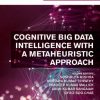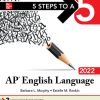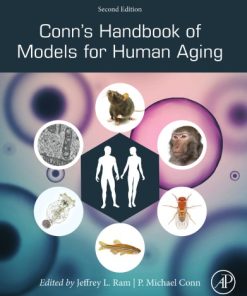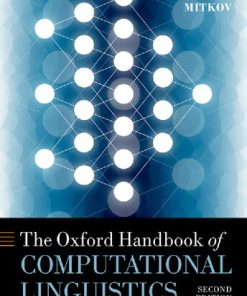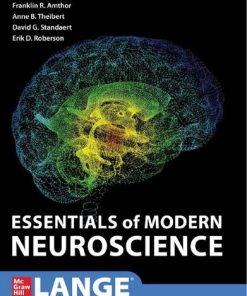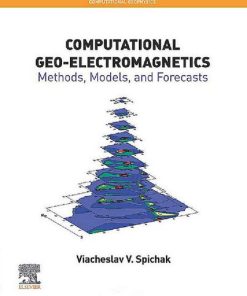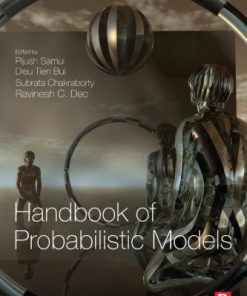(Ebook PDF) Computational Models of Reading A Handbook 1st Edition by Erik Reichle 0190669098 9780190669096 full chapters
$50.00 Original price was: $50.00.$25.00Current price is: $25.00.
Computational Models of Reading: A Handbook 1st Edition by Erik D. Reichle – Ebook PDF Instant Download/DeliveryISBN: 0190669098, 9780190669096
Full download Computational Models of Reading: A Handbook 1st Edition after payment.
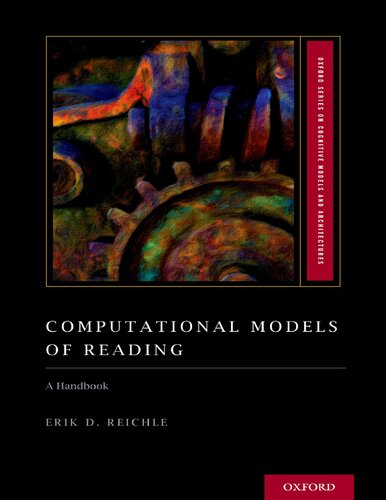
Product details:
ISBN-10 : 0190669098
ISBN-13 : 9780190669096
Author : Erik D. Reichle
This book is about computational models of reading, or models that explain (and often simulate) the mental processes that allow us to convert the marks on a printed page into the representations that allow us to understand the contents of what we are reading. Computational Models of Reading assumes no prior knowledge of the topic and is intended for psychologists, linguists, and educators who are interested in gaining a better understanding of what happens in the mind during reading. Erik D. Reichle includes introductory chapters on reading research and computational modelling, and the “core” chapters of the book review both important empirical findings and the models designed to explain those findings within four domains of reading research: word identification, sentence processing, discourse representation, and eye-movement control (which involves coordinating word, sentence, and discourse processing with the perceptual, cognitive, and motoric systems responsible for vision, attention, and eye movements). The final chapter of the book describes a new integrative model of reading, Über-Reader, and several simulations using the models that demonstrate how it explains several key reading phenomena.
Computational Models of Reading: A Handbook 1st Table of contents:
1. Introduction
Information-Processing Metaphors
Brief Overview of the Human Information-Processing System
Reading versus Spoken Language and Other Communication
Summary and Conclusions
Chapter Previews
2. Formal Models
What are Formal Models?
Different Approaches to Formal Modeling in Cognitive Science
Process Models
Production-System Models
Connectionist Models
Comparative Examples
How are Models Compared?
Computational Models of Reading
3. Models of Word Identification
Word-Identification Research
Word-Identification Tasks
Learning Effects
Orthographic Effects
Phonological Effects
Semantic Effects
Patterns of Impairment
Strategic Effects
Precursor Theories and Models
Logogen Model
Bin Model
Dual-Route Model
Analogy Model
Parallel-Coding Systems (PCS) Model
Interactive-Activation (IA) Model
Activation-Verification Model
Triangle Model
Multiple-Levels Model
Multiple Read-Out Model
Multiple-Trace Memory Model
Connectionist Dual Process (CDP) Model
Dual-Route Cascaded (DRC) Model
SERIOL
ACT-R Lexical-Decision Task Model
Bayesian Reader
Connectionist Dual Process (CDP+) Model
Overlap Model
Spatial-Coding Model (SCM)
Model Comparisons
Conclusions
4. Models of Sentence Processing
Sentence-Processing Research
Precursor Theories and Models
Augmented Transitional Networks
Sausage Machine Model
Garden-Path Model
Sentence-Gestalt (SG) Model
Simple-Recurrent Network (SRN)
CC-Reader
Probabilistic Parser
Attractor-Based Parser
Constraint-Based Models
Dependency-Locality Theory (DLT)
Cue-Based Parser
Activation-Based Model
Surprisal
Model Comparisons
Conclusions
5. Models of Discourse Representation
Discourse-Representation Research
Precursor Theories and Models
Story Grammars
Kintsch & van Dijk’s (1978) Model
Construction-Integration (CI) Model
Situation-Space Model
3CI-Dynamic Model
State-Space Search Model
Landscape Model
Resonance Model
Langston-Trabasso Connectionist Model
Distributed Situation-Space (DSS) Model
Model Comparisons
Conclusions
6. Models of the Reading Architecture
Eye-Movement Research
Precursor Theories and Models
Gough’s (1972) Model
Reader
Morrison’s (1984) Model
Rayner & Pollatsek’s (1989) Model
Attention-Shift Model (ASM)
E-Z Reader
EMMA
SWIFT
Glenmore
SERIF
OB1-Reader
Model Comparisons
Conclusions
7. Synthesis
Candidate Reading Architectures
Über-Reader
Word Identification
Sentence Processing
Discourse Representation
Peripheral Systems
People also search for Computational Models of Reading: A Handbook 1st:
types of computational models
computational models examples
what is computational modeling
computational models of cognition
computational models of cognition berkeley
Tags:
Computational Models,Reading,Handbook,Erik Reichle
You may also like…
Computers - Programming
Adjustment Models in 3D Geomatics and Computational Geophysics: With MATLAB Examples 1st Edition
Psychology - Cognitive Psychology
Computers - Artificial Intelligence (AI)
The Oxford Handbook of Computational Linguistics 2nd Edition Ruslan Mitkov (Editor)
Science (General)
Poetry - American Poetry
The Art of Love Poetry 1st Edition Erik Gray 9780192548252 0192548255


